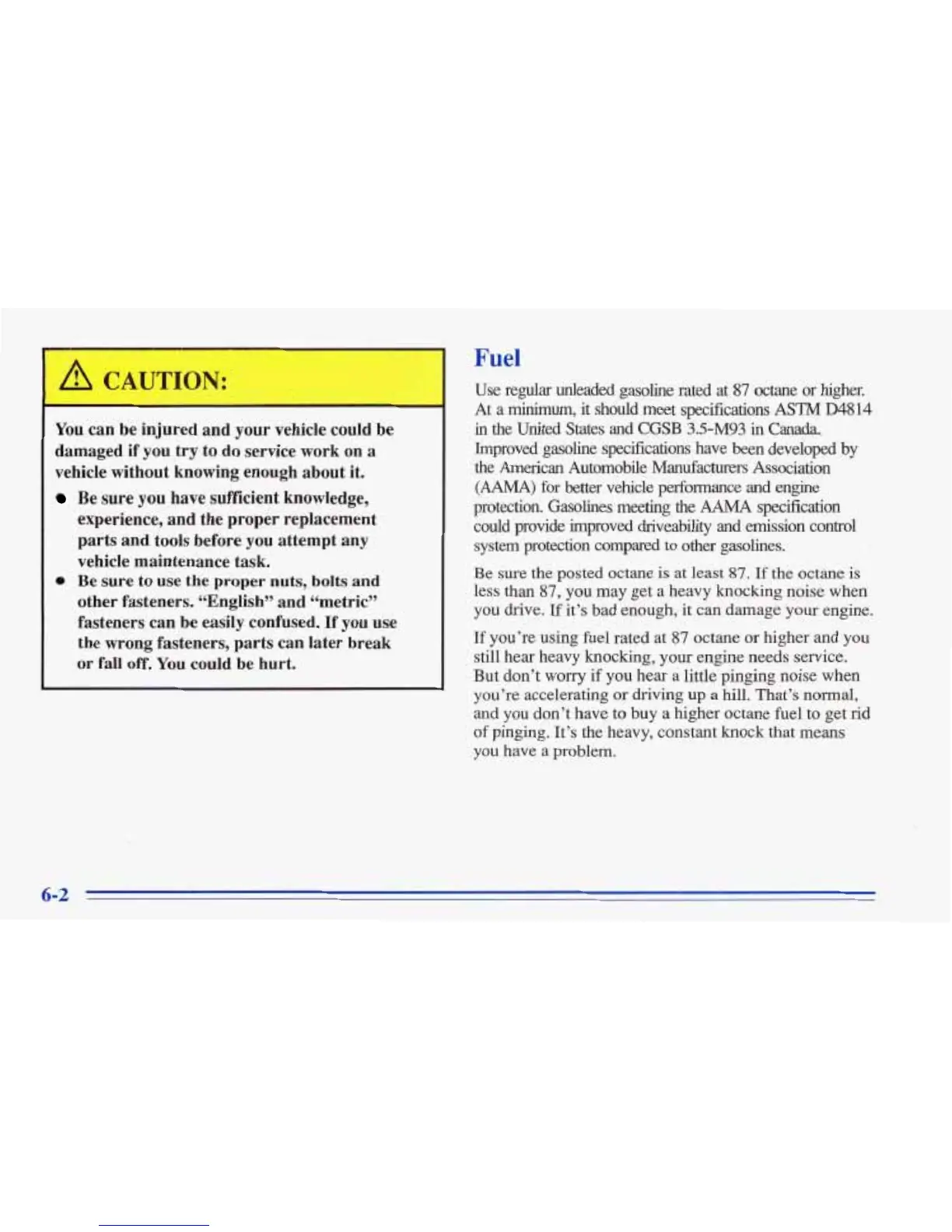A
CAUTION:
~ ~~
You can be injured and your vehicle could be
damaged if you try to
do
service work
on
a
vehicle without
knowing
enough about it.
Be sure
you
have sufficient knowledge,
experience, and the proper replacement
parts and tools before you attempt any
vehicle maintenance task.
0
Be
sure
to
use
the
proper
nuts, bolts
and
other fasteners. “English,’ and “metric”
fasteners can be easily confused.
If
you
use
the
wrong fasteners, parts can later break
or
fall
off.
You
could
be
hurt.
Fuel
Use regular unleaded gasoline rated at
87
octane or higher.
At a
minimum,
it should meet specifications
ASTM
D4814
in
the
United
States
and
CGSB
3.5-M93
in
cana$a
Improved gasoline specifications have been developed by
the American Automobile Manufacturers Association
(AAMA)
for better vehicle performance
and
engine
protection.
Gasolines
meting
the
AAMA
specification
could provide improved driveability
and
emission control
system protection compared to other gasolines.
Be
sure
the
posted
octane
is
at least
87.
If
the octane
is
less than
87,
you may get a heavy knocking noise when
you drive. If
it’s
bad enough, it can damage your engine.
If
you’re using fuel rated at
87
octane
or
higher and you
still hear heavy knocking, your engine needs service.
But don’t worry
if
you
hear
a little’pinging noise when
you’re
accelerating
or
driving
up
a
hill.
That’s normal,
and you don’t have to buy
a
higher octane fuel
to
get rid
of
pinging.
It’s
the heavy, constant knock that means
you
have
a
problem.
6-2
